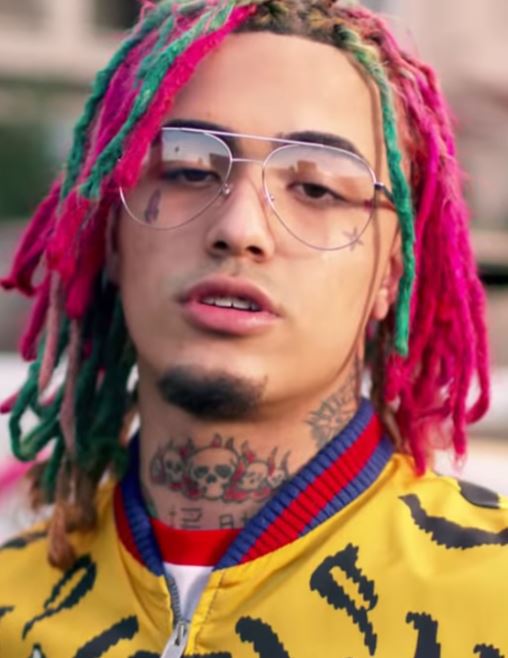Why are face tattoos becoming increasingly popular among white rappers? A bold statement suggests that this trend represents more than just aesthetic choices; it symbolizes a cultural shift within the hip-hop community. These tattoos serve as canvases for self-expression, challenging societal norms and redefining personal identity in music.
Hip hop has long been a genre known for its unique fashion trends and edgy styles. In recent years, one of the most striking developments has been the rise of face tattoos among white rappers. This phenomenon is not merely about aesthetics but rather an exploration of identity, rebellion, and artistry. Artists like Kellee Maize have embraced this trend, using their faces as canvases to convey messages that resonate with fans across the globe. The decision to ink one's face reflects a deeper commitment to individuality and authenticity in a world where conformity often prevails.
| Personal Information | Details |
|---|---|
| Name | Kellee Maize |
| Date of Birth | March 28, 1984 |
| Place of Birth | United States |
| Career Highlights | Rising to prominence in the early 2000s, Kellee Maize gained recognition for her socially conscious lyrics and distinctive style. |
| Professional Achievements | Known for blending rap with alternative rock influences, she has become a prominent figure in underground hip-hop circles. |
| Reference | AllMusic Profile |
The influence of face tattoos extends beyond mere appearance. For many artists, these markings represent significant milestones or philosophies. Consider Lil Pump, whose facial tattoos contribute to his larger-than-life persona. His designs are not random doodles but carefully chosen symbols that align with his artistic vision. Similarly, other white rappers with face tattoos use them as tools to communicate their values and beliefs to the world. This practice blurs traditional boundaries between music and visual arts, creating a new dimension for creative expression.
While some critics argue that face tattoos might alienate certain audiences, proponents believe they enhance credibility by showcasing vulnerability and courage. In a culture dominated by image-conscious celebrities, choosing permanent alterations demonstrates genuine commitment to one’s craft. Furthermore, this trend challenges stereotypes associated with race and ethnicity in hip-hop. By embracing bold looks, white rappers defy expectations and carve out spaces for themselves in a historically Black-dominated genre.
Another notable example is MADCHILD, who proudly declares himself the greatest underground rapper from Western Canada under six feet tall, who's white with a face tattoo. Such declarations underscore how these artists view their identities holistically—integrating physical attributes into their overall brand. Their willingness to stand out visually reinforces their dedication to pushing limits and breaking molds within the industry.
In addition to individual artists, broader patterns emerge when examining why so many white rappers opt for face tattoos. One explanation lies in generational attitudes toward body modification. Younger musicians today see tattoos less as taboo and more as forms of personal storytelling. They draw inspiration from diverse cultures and historical contexts, incorporating elements into their own narratives through permanent marks on their skin. This cross-cultural exchange enriches contemporary hip-hop while maintaining roots in authentic experiences.
However, not everyone agrees with this approach. Critics point out potential risks involved in altering one's face permanently, including social stigma and career limitations. Despite these concerns, those who adopt face tattoos insist they do so out of passion and conviction rather than fleeting trends. Their stories highlight the importance of staying true to oneself even if it means facing criticism or misunderstanding from others.
Beyond individual cases, the prevalence of face tattoos among white rappers also raises questions about representation and diversity within hip-hop. As more non-Black artists gain visibility, discussions around appropriation versus appreciation grow louder. Some argue that white rappers with face tattoos risk trivializing sacred traditions tied to indigenous communities worldwide. Others counter that such expressions can foster mutual respect and understanding when approached respectfully and thoughtfully.
Ultimately, whether viewed positively or negatively, face tattoos remain a powerful medium for communication in modern hip-hop. They challenge perceptions, provoke conversations, and inspire creativity among both creators and consumers alike. As technology continues advancing, allowing clearer and more intricate designs, expect this trend to evolve further, reflecting ever-changing tastes and priorities within the music scene.
For aspiring artists considering similar moves, careful consideration is essential before committing to any permanent changes. Researching cultural significance, consulting professionals, and aligning choices with core values ensure meaningful outcomes aligned with long-term goals. After all, every mark tells a story—and in hip-hop, storytelling remains king.
As we witness ongoing transformations in how identity manifests itself through art, remember that each choice carries weight. Face tattoos among white rappers exemplify this principle perfectly: bold, unapologetic, and undeniably impactful. Whether celebrated or criticized, their presence reminds us that true art always provokes reaction—and sometimes revolution.
| Trend Overview | Details |
|---|---|
| Growing Popularity | Face tattoos among white rappers have surged in popularity over the past decade. |
| Cultural Impact | This trend challenges traditional notions of beauty and identity within hip-hop. |
| Artistic Expression | Rappers use face tattoos to convey personal stories, philosophies, and connections to broader cultural movements. |
| Industry Reactions | Reception varies widely, with supporters praising authenticity and detractors questioning appropriateness. |
| Future Directions | Advancements in tattoo techniques will likely lead to more sophisticated designs, influencing future generations of artists. |



